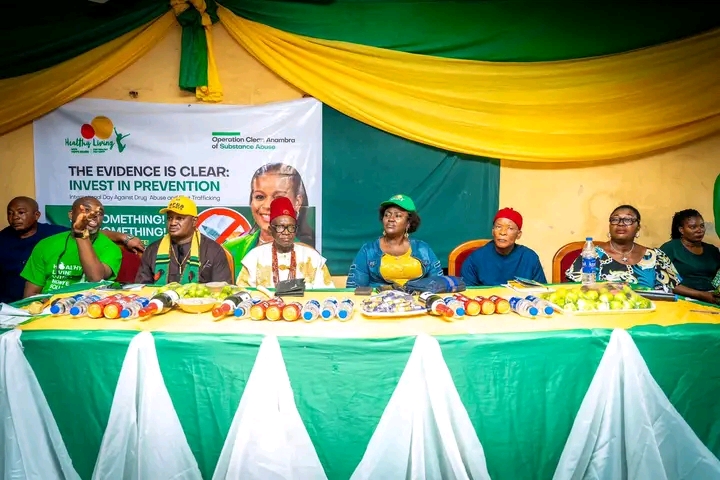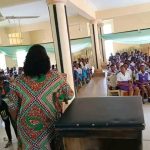Mrs. Nonye Soludo, the wife of the Anambra State governor, has called on parents and community leaders to actively participate in the campaign against drug abuse and illicit trafficking, emphasizing the importance of this fight for the future of the state.
Speaking at an event held at the Oyi Local Government Area headquarters in Nteje to mark this year’s International Day Against Drug Abuse and Illicit Trafficking, Mrs. Soludo highlighted the critical theme of the celebration: “The evidence is clear: invest in prevention.” She pointed out the alarming statistics of drug abuse in Nigeria, urging everyone to take action to protect the next generation.
Mrs. Soludo announced a statewide initiative aimed at providing local authorities with information about the manufacturers and peddlers of illicit substances. She expressed her desire for stronger collaboration with community-based stakeholders to ensure the project’s success.
“The only way to eradicate drug abuse and illicit trafficking in Anambra State is through honest collaboration and a sincere commitment from all stakeholders,” Mrs. Soludo said. She encouraged residents to report any known manufacturers or sellers of illicit drugs via the communication lines 08133979363 or 09030055335, assuring them of confidentiality.
Commissioner for Health Dr. Afam Obidike and Commissioner for Women Affairs and Social Welfare Mrs. Ify Obinabo also spoke at the event, discussing the dangers of drug abuse and stressing the importance of supporting Mrs. Soludo’s program through community involvement.
Mr. Emma Nweke, the Transition Committee Chairman of Oyi Local Government Area, announced that the council has begun grassroots transmission of the initiative in partnership with local leaders. He warned those involved in the illicit drug trade to cease their activities or face legal consequences.
The Presidents General of Umunya and Awkuzu pledged their communities’ support for Mrs. Soludo’s campaign, assuring full cooperation to achieve the desired outcomes.
The event saw participation from traditional rulers, community leaders, youth and political support groups, and secondary school students from the local government area.




